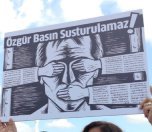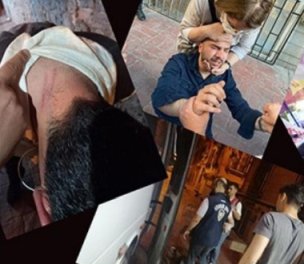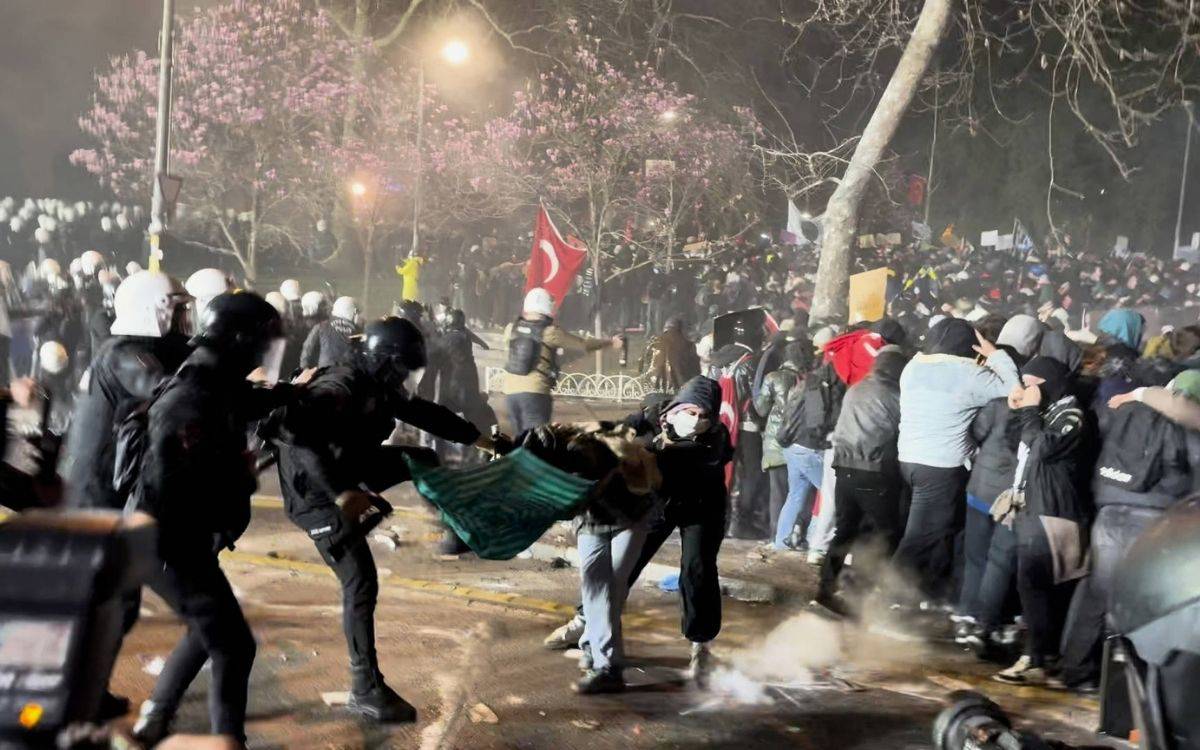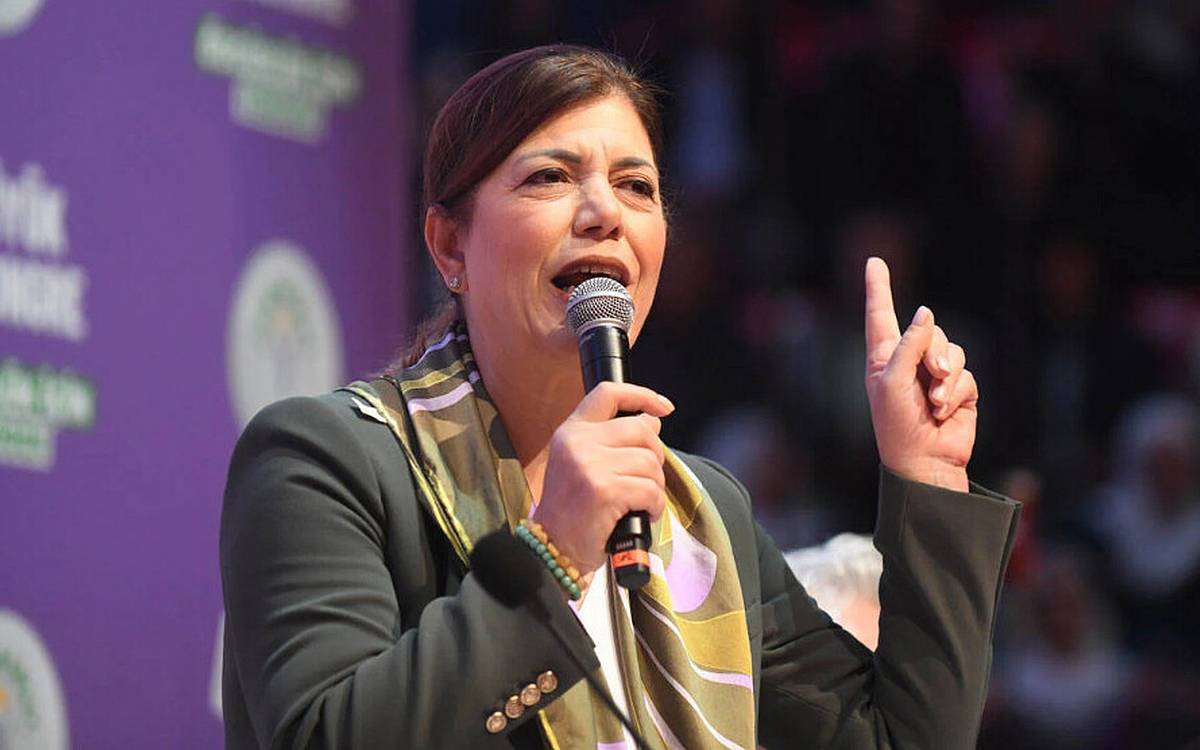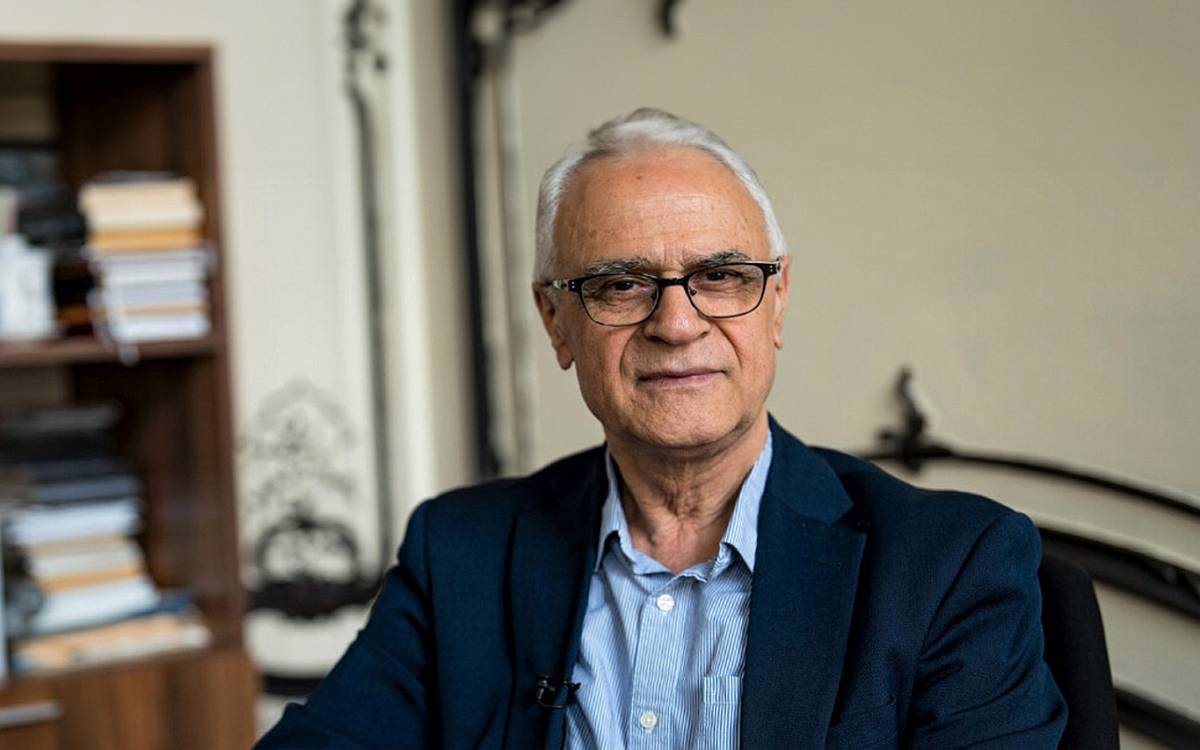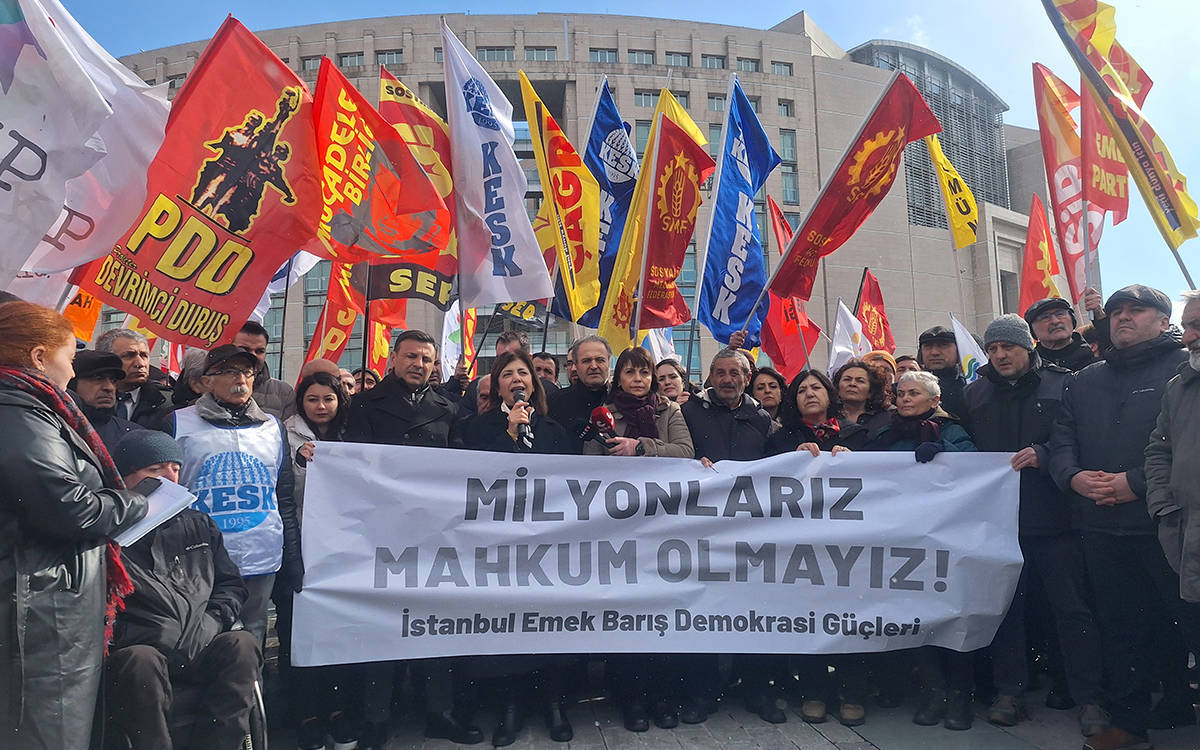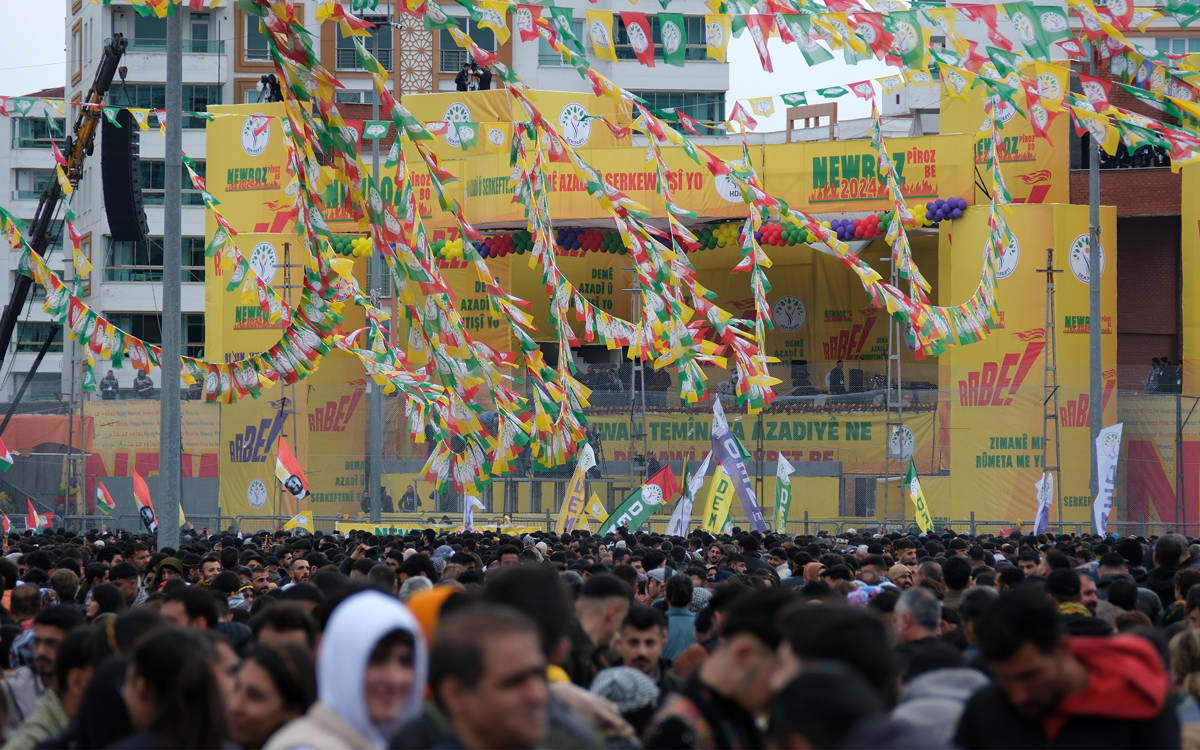Click to read the article in Turkish
Sixteen journalists who were detained in the predominantly Kurdish province of Diyarbakır during last week's police raids were remanded in custody early today (June 16).
Aziz Oruç, an editor for the Mezopotamya Agency (MA), Safiye Alagaş, the news manager of JinNews, Serdar Altan, the co-chair of the Dicle Fırat Journalists Association (DFGD), Mehmet Ali Ertaş, the managing editor of the Xwebun newspaper, Neşe Toprak, Mehmet Şahin, Zeynel Abidin Bulut, Elif Üngör, Remziye Temel, Suat Doğuhan, Lezgin Akdeniz, İbrahim Koyuncu, Abdurrahman Öncü, Ramazan Geciken and Mazlum Güler were detained on the charges of "membership of an organisation" while Gülşen Koçuk, Kadir Bayram, Mehmet Yalçın, Esmer Tunç and Feynaz Koçuk, and İhsan Ergünlü, who was also detained along with the journalists, were released on probation.
Resul Temur, the lawyer of 16 journalists spoke to bianet about the accusations against the journalists during the interrogation.
Journalism questioned
Temur underlined that the journalistic activities of each of his clients were questioned during the interrogations and said as lawyers we witnessed eight days of unlawfulness, we see is that journalism is in danger.
"There is no interrogation regarding the actions of 16 journalists, it is journalism in question."
"There might be more arrests, detention warrants. The public and professional press organizations have a great responsibility. Freedom of the press should be protected."
"Why do you call it a war?"
Temur noted that the presenters and TV editors were asked about the content of the programs they produced, how these content were determined, and also the language used in these programs."
"They were asked whether they received instructions while deciding on the contents," Temur said.
"For example, the expressions such as 'Kurdish question' and 'war' were used in the program that Aziz Oruç was presenting. He was asked, 'What do you mean by the Kurdish question?', 'What do you mean by war, do you define the problem between the organization and the state as war?', 'Why do you call it war?'"
Street interview deemed a crime
"Aziz's one street interview was the subject of accusation. The interview in question is about the effects of war on the economy. 'Why did you choose this topic, did you receive instructions from anyone while choosing this content?' Oruç was asked."
"Again, he was asked about the interview he made about Newroz. In other words, the journalists' journalism was interrogated. When they could not find any crime from their news, questions were asked about language and content."
"Why do you work for this company?"
Temur said, "This is not only the case for Aziz Oruç, it was the same for all other journalists, the language or the content of the programs have been the subject of accusations."
"Even the cameramen were asked about why do they work for that company. They were asked questions such as 'Are you aware of the content of this production company? How do you evaluate these contents?'."
No concrete evidence
"The questions were different during the judge's interrogation," Temur said.
"The coroner judge asked questions based on the statements of people who joined and left the organization 10-15 years ago. For example; several statements say, 'I watched Sterk and Medya TV and I was influenced by that and I decided to join the organization.'"
"They use these statements against the journalists. None of these journalists work for Sterk or Medya TV. But the confessions given for those media institutions are used against journalists working in other press institutions."
"Also, even if they have been working on these channels, the prosecutor and the judge should be questioning the actions of these journalists. But they can't put forward anything as concrete evidence."
"The language of the programs was the subject of accusation"
"They were arrested on the charge of 'membership in a terrorist organization'. There is no evidence for this accusation. The only thing they have is the statements of people who escaped from the organization. Their statements about the media outlets such as Sterk TV, Medya TV, and ANF."
"For the presenters, the language of the programs was the subject of accusation, but since there was no evidence for the cameramen and technical staff, the institutions the cameramen worked for were deemed a crime."
Kurdish music videos deemed a crime
"For example, there are some photos as evidence on the phones of the journalists, many of them have been deleted, but the police have brought them back, so there is nothing but journalism in the file. Again, even Kurdish music videos were shown as criminal elements."
"We understand from this situation that there was no reason for detainment eight days ago, but since the police could not find anything, they started to fabricate evidence."
CLICK - Journalism despite knowing that you will be arrested
Lawyer Temur listed the reasons for the arrest of the journalists as follows:"Both the news articles Aziz Oruç prepared for Mezopotamya News Agency and the street interviews were the subject of accusations. Safiye Alagaş's articles for JINNEWS were the subject of accusation. Elif Üngür is the presenter of PEL Production. The news programs she presented were considered a crime. Mehmet Şahin is working at PİYA, he is presenting a program about the newspapers published in Turkey, during the program he reads the news articles and headlines. He was arrested because of that. Mehmet Ali Ertaş, Zeynel Abidin Bulut, and Ayşe Kara were making a program together and evaluating the agenda during the program. They were arrested because of that. Neşe Toprak is a painter and she was preparing a culture and art program. Her program was considered criminal. Ömer Çelik was preparing the program "View from Amed", he was arrested over this program. Remziye Temel is an accountant. She was arrested just because of working as an accountant in the institution. Serdar Altan was arrested for the TV show he was presenting. Suat Doğuhan, the owner of Pel Production Company, was arrested for being the owner of the company. Lezgin Akdeniz, Abdurrahman Öncü, Mazlum Güler were all cameramen. They were arrested because they were working in a production company that is deemed criminal. |
(RT/TB)





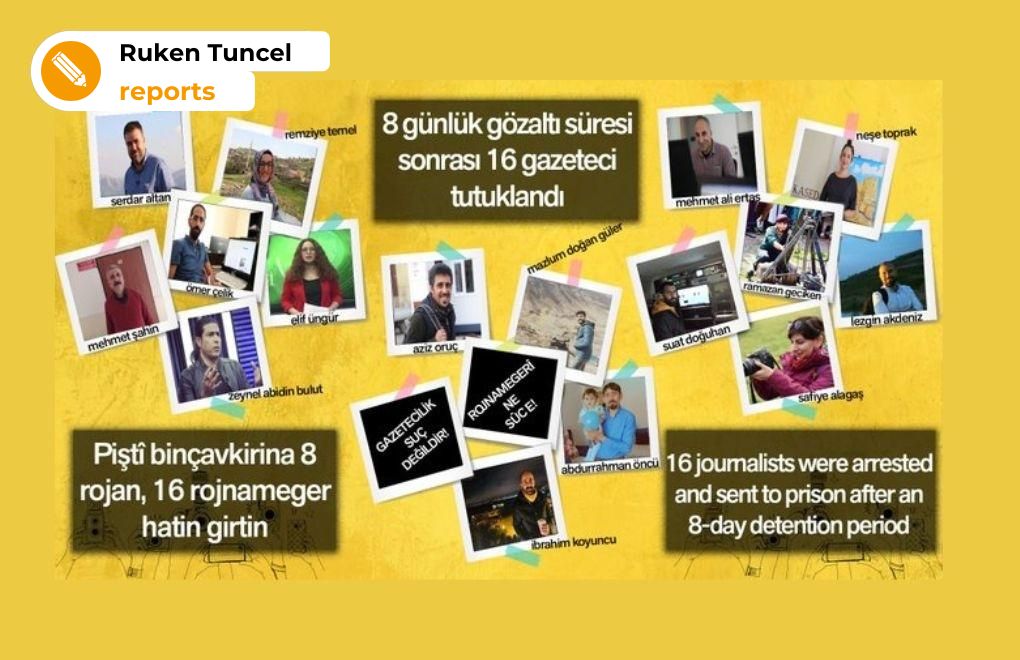
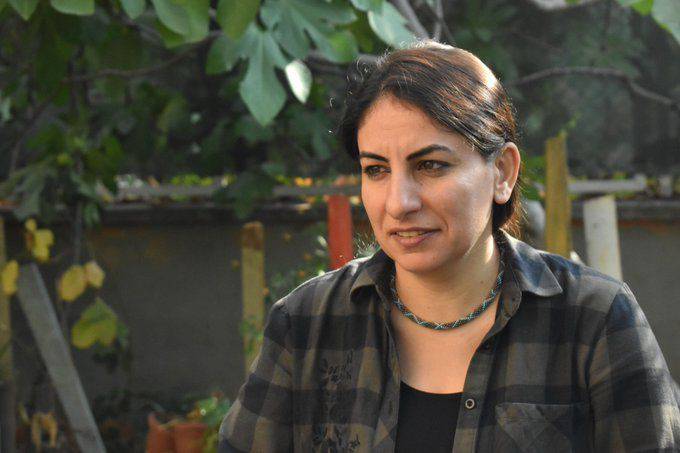

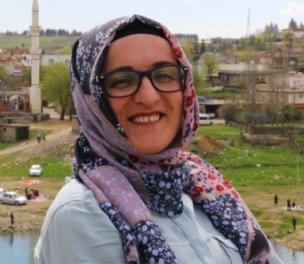
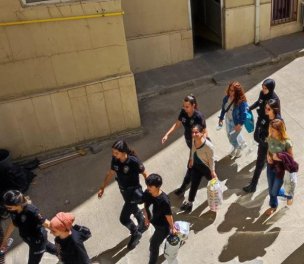
sa.jpg)
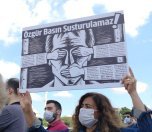
as.jpg)
